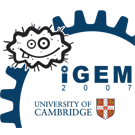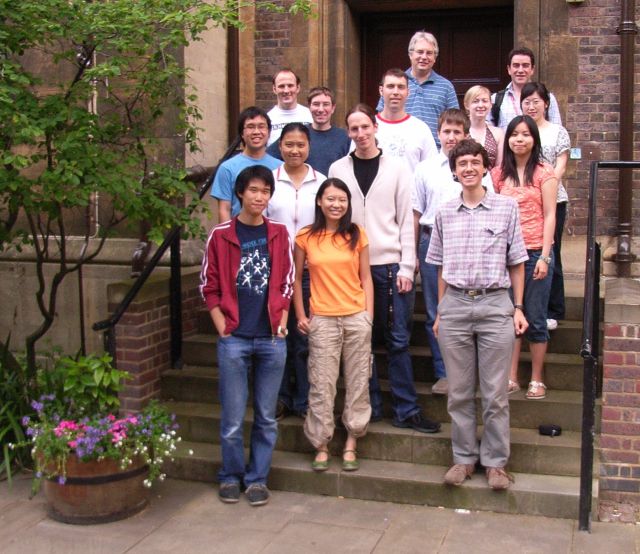Introduction
In order to engineer interesting and useful functions in biology, a robust and extensive range of inter- and intra-cellular signalling pathways must be available. By analogy with the Internet, such a system must allow communication between cells of different heritage and structure (different “operating systems”). In the course of this project we attempted to implement candidates for both types of signalling mechanism, and additionally made progress towards adding a new Gram-positive platform for synthetic biology to the Registry.
|
PoPS amplifier
We built a standard amplifier which can be used in any synthetic transcriptional system, taking in a standard PoPS input and giving a PoPS output of a known amplification factor. In addition, the activator-promoter pairs tested have characterised crosstalk giving the potential for a controlled multifaceted response.
More information on the amplifier project...
|
Peptide signalling
The Accessory Gene Regulator (Agr) system in S. aureus is an oligopeptide-based quorum sensing mechanism. We worked on converting it into a reusable interbacterial signalling system for communication amongst and between both Gram-positive species (B. subtilis) and Gram-negative bacteria (E. coli), based on controllable secretion and detection of the signalling peptide AIP.
More information on the signalling project...
|
Gram-positive chassis
Most synthetic biology so far has involved Gram-negative bacteria, which are more widely used in molecular biology research; however, the biotechnology industry relies on Gram-positive bacteria. We worked on constructing a "chassis" out of Bacillus subtilis, a common Gram-positive bacterium, into which genetic engineers can add BioBrick parts and control circuits.
More information on the Gram-positive chassis...
|
- [http://www.ccbi.cam.ac.uk/iGEM2007/index.php/Main_Page Go to the Cambridge iGEM 2007 team's official wiki!] (with more information about the team and how we came up with this idea)
- [http://partsregistry.org/cgi/partsdb/pgroup.cgi?pgroup=iGEM2007&group=Cambridge BioBricks we have contributed to the Registry]
|
Meet the team!
Top row, from left: James Brown (PhD student mentor), Jim Haseloff (faculty supervisor), Gos Micklem (faculty supervisor)
Second row, from left: Yi Jin Liew, John Crowe (faculty), Lovelace Soirez, Stephanie May, Yue Miao
Third row, from left: Zhizhen Zhao (Jane), Stefan Milde, Dmitry Malyshev, Xinxuan Soh (Sheila)
Front row, from left: Narin Hengrung, Yi Han, David Wyatt
Not in photo: Jim Ajioka (faculty supervisor), Lorenz Wernisch (faculty), Tony Southall (PhD student)
The mailing list for the whole Cambridge iGEM2007 team is igem2007 [at] ccbi.cam.ac.uk
|

